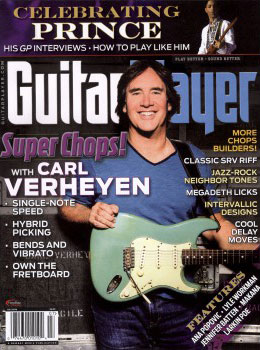Back in 2013, I was asked to produce, mix and engineer the album “Mustang Run” by the great Carl Verheyen. Needless to say, it was a life-changing experience. Not only was I given the chance to work with some of my favorite musicians in the known universe –like Carl himself, Simon Phillips, Gregg Bissonette, Stu Hamm, Jimmy Johnson and Jim Cox to name a few—But above and beyond all that, I gained a real friend and a mentor.
With more than 40 years playing the guitar Carl is considered one of the ‘top 10 players in the world’ and ‘top 100 players of all times’ by Guitar Player magazine, for which Carl is in the cover of their recent July edition. Mostly known as a member of the band Supertramp, he is a critically acclaimed, multi-faceted artist, musician, vocalist, songwriter, arranger, producer and educator.
“Carl’s problem-solving approach to issues concerning music professionals is both uplifting and inspiring.”
A little while ago I had the chance to share my article The Sound Of Change with Carl with the intention of asking for some feedback, but instead of that I got something far more valuable: an impromptu conversation about the current state of affairs in the music industry and what it means to be a musician in this day and age; Carl’s problem-solving approach to issues concerning music professionals is both uplifting and inspiring.
I want to share with you the most interesting excerpts of this conversation along with providing some context to what he is sharing.
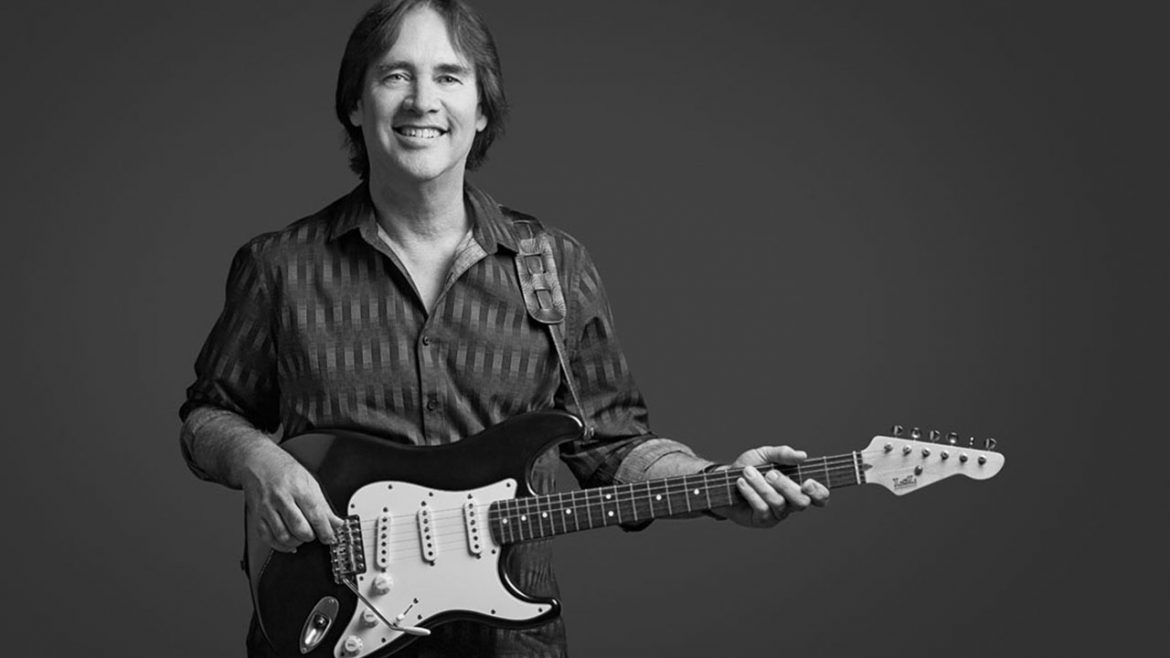
To get the ball rolling and the conversation started I asked Carl what got him started in music what made him want to do it professionally…
Ah, let’s see…I started playing the guitar age 11. Got my first guitar and my first lesson on my 11th birthday. Guitar was about $30, lesson was $2,50 (two dollars and fifty cents!) and I was one of those kids that was totally arrested by music. I liked the Birds, the Beatles, the Rolling Stones…it was all in that 1965 era. So I got into it right away and never looked back and I knew right away: I want that job! I never had another job other than playing music, which is very rare in this day and age and very fortunate.
Would you mind talking about your early ‘gigs’ and how you discovered and embraced Jazz?
Right out of high school I fell into bands and when I was 18 I got a job playing and singing at this restaurant in Pasadena, called The Sawmill; playing for 4 hours a night and singing tunes like Van Morrison, Joni Mitchell and Jackson Brown type-tunes. And I actually had quite a revelation one night, ‘cause I was trying to save my voice by learning more and more solo-guitar pieces: this guy comes in and says “hey man, I like the way you play…you wanna get together and jam tomorrow?” He was an older guy. I said “sure”, so I go over to his house and he goes: “let’s play something out of this book”; he opens up some music: It blows my mind! Like I’m, all of a sudden, looking over this wall at all this stuff I don’t know, and it took me down the long-dark jazz highway. In the 70’s I threw myself into learning harmony, jazz standards you know.
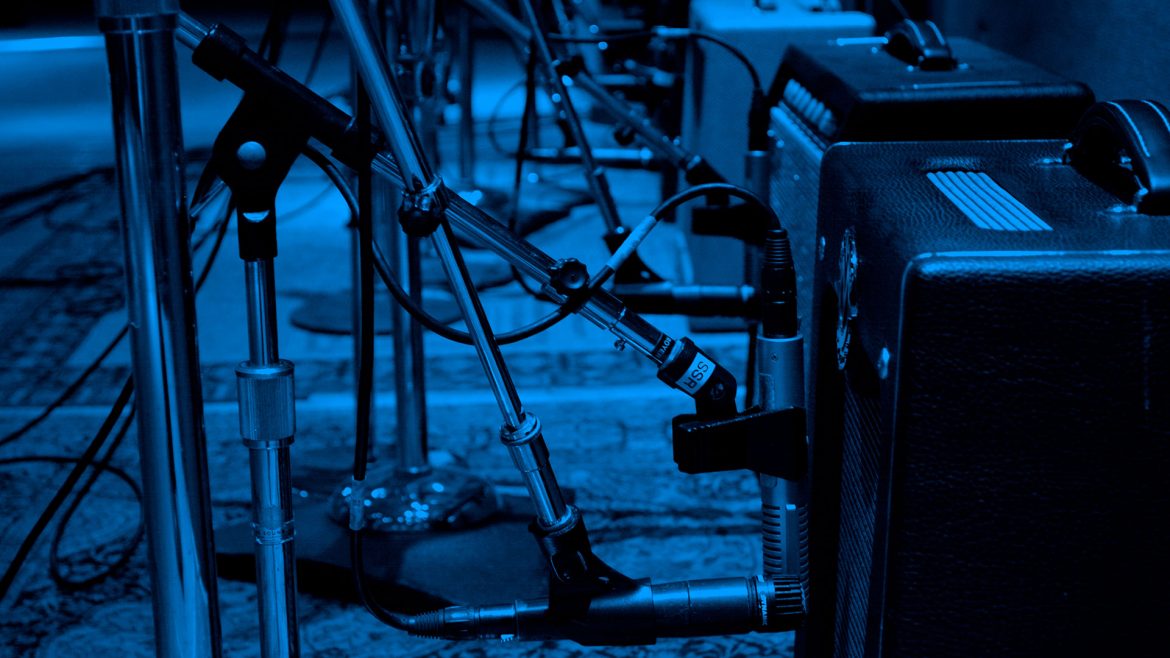
One of Carl’s pivotal career decisions was his move to Los Angeles, which lead not only to studio work but also to work with Supertramp.
In 1980 I moved up here because I had a number of friends tearing it up, up here and starting to get studio work. By ’85 I joined Supertramp and I auditioned for that. They had auditioned eighteen guys and I was the nineteenth and I got the gig! I started to tour with them and they let the band go on hiatus until they got out of their A&M records contract and signed with EMI. Then they put it back together with me and made me a full time member and I’ve been doing it ever since.
Even though Carl quickly became one of the top sessions players, eventually he decided to evolve and transition into being an artist. Here is the how and the why…
Throughout the 90’s and the late 80’s, I got into being a ‘studio guy’ in LA and got it up to where I was doing 8-10 sessions a week, every week and having amazing income and years of -you know- just solid work. Then, once I got my own band on the road, which was ’97, I realized this is what’s going to happen: Studio income is gonna go down and the solo artist income is gonna go up.
“…Eventually you begin to realize it’s much more soul-satisfying to play your own music in front of people, who actually know the words and are singing along in front row…”
I could see that you can’t do both, ‘cause I’d be out there on the road somewhere and my wife would call and say: “man…you got a call for a week-long session” for Disney, or Pixar or MGM or something like that; so I’d just going: “Oh my god, I’ve blown it man, what am I doing?” But, eventually you begin to realize it’s much more soul-satisfying to play your own music in front of people, who actually know the words and are singing along in front row, than to be sitting in a big room with 105 guys with headphones on, watching a conductor and playing. Eventually you realize being a sideman, you are in the service of somebody else’s musical vision; while being a solo artist it’s your musical vision and you do everything you can to make that happen.
You mentioned that it is harder to make a living as an artist than it is as a session musician. What did you do to supplement that income?
Under the banner of ‘solo artist’ you can do producing, tons of educational things (master classes, clinic tours, online education) and then I can tour as a solo-acoustic guy or with my band or as an educator; so there’s a lot of way to ‘keep it rolling’. You just have to be creative, that’s the thing.
When the conversation shifted into education, I couldn’t help to ask Carl what got him into it…
I remember having this good friend: Ronnie Eschete, who was a fantastic guitar player from Louisiana…jazz guy and I idolized him. At one point the phone rings and he picks it up and it was super-famous jazz guy named Howard Roberts. Howard told him: “I’m starting a music school. It’s going to be called Guitar Institute of Technology and I want you to be a teacher there”. Six months later Ron has a job teaching there. He would call me and go: “Hey man, Pat Martino is coming to do a clinic tomorrow…you ought to come up!” So I’d come up, park on the street, sneak in, watch the whole clinic from the front row, ask all the questions and split!
So years later, I get this call from a company called REH to make an instructional video. My producer was a guy name Don Mock, who is another badass, great jazz guitar player; so we show up at the studio and he goes: “Oh my god! You are that guy that came to all those clinics, asked all the questions and we’d all go: Who is that guy, is he in your class? No…is he in yours? No!” And I’d go “Yeah man, I just had an insatiable curiosity to learn and be better, so I wasn’t gonna miss it when part Martino came to town”.
That’s what got me into it. Is this having seen these guys do their thing and be inspired, go home and practice for six days just on what I learnt that day, you know? Maybe that’s what got me into education.
The joy that I experience playing a musical instrument, that is a passion that I want to pass down to the next generation and feel responsibility, ‘cause so many kids are making music with their computers completely…to really try to become a player in a virtuosic level, that takes a lot of dedication and a lot of time and I think that with the right inspiration, young people can aim down that highway, and then what we are doing is we are passing it on to the next generation.
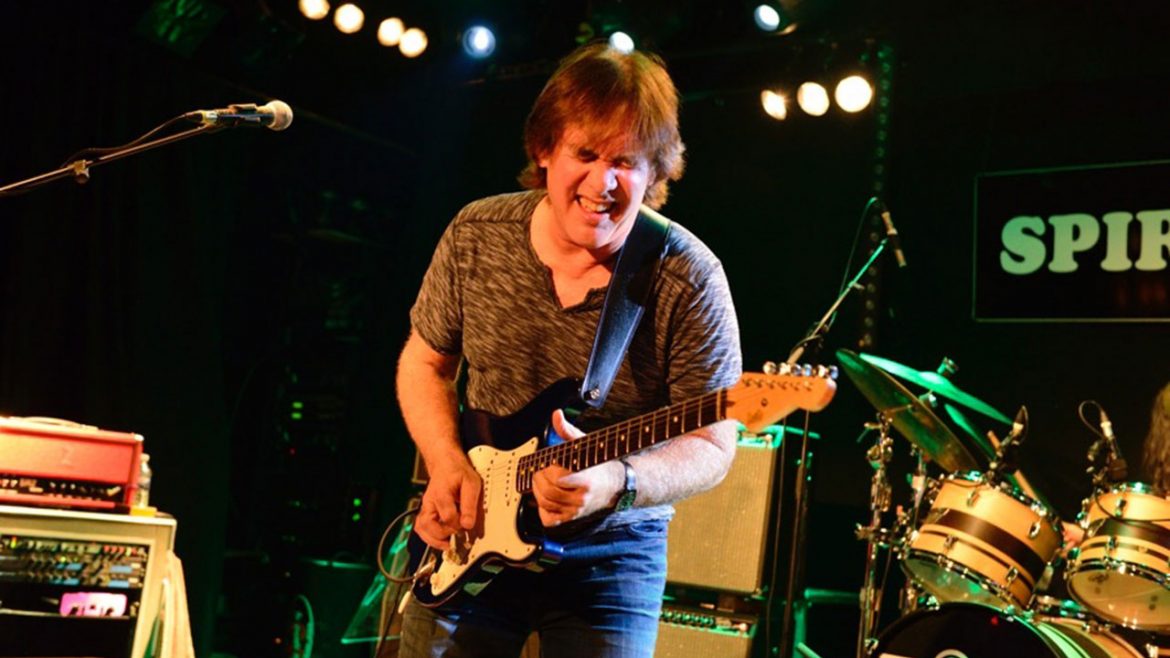
In you opinion, is it possible to make living as a touring musician nowadays?
I mean, if you do you’ll basically on the road 300 days a year. You really can’t have a family, a home or a wife. My friend Joe Bonamassa is that guy: I don’t think he teaches anybody; he just tours, and tour, tour, tour…
I know Pat Metheney did that initially: He hit the road for two years and didn’t have an apartment. I’d say: “Where’s your turntable and your records?” –this is pre-CD era-. He goes “they are in storage in a place in Florida”. So what do you do when you are off the road? He goes: “I’m not”.
A lot is said about how the music industry keeps changing and evolving and the rules keep changing and evolving. How do you see this from the perspective of someone who’s been in the industry for such a long time?
Well, first you have to recognize that a businessman needs to reinvent himself every five years. When you think about that then you start to relate it to the music business and it’s almost like every five minutes! This is what we have to realize: that the rules keep changing, so in the studio business, where I played every episode of ‘Cheers’ –I never missed one, I was never out of town for one somehow- that was 8 years of weekly television. At the end of that period along comes a new generation of composers that can say: “Hey, we don’t need a session for every episode…we’ll library a bunch of stuff. If you want ‘happy-to-sad’ or if you want ‘excitement-to-fade to black’ or ‘go to commercial’, we’ll just give you that music and you can slide it in wherever you want”. So the entire series, the entire year – all 24 or 22 episodes- could be done in a day. Hire a band, write a bunch of cues, do it…main title, ending title…done. So all of that work went away; you’d get one session instead of twenty-four.
I was doing tons of those kinds of shows –sitcoms- like Seinfeld and Married with children; all these little shows that were steady work, and then big shows too, like one called The young writers -which was an orchestral thing for four years- three guitar players, you know. So you have to realize: ok, all that went away…now what? Well, jingles came along! Motion pictures were always constant, but this is the work-a-day studio stuff. So you have records that are one or two a month, you got motion pictures that were one or two a month, but TV and jingles were everyday. I fell on some of these jingle houses that were just crankin’ and there the ‘dot com’ boom happened… there was one place in the 90’s where I worked five days a week. You know, you got a TV show that starts at nine, it’s done by noon, they want you at one and then another company wants you at four! And this was going on every day for the longest time.
Then something happen: the jingle business went away and there was this period where people would troll MySpace going: “Hey, I can license your tune for my jingle for $150, do you want to do it?” and some of the baby bands were going “Hey, my song’s in a commercial…I’ll do it!” If you are twenty-one years old you go ‘hell yeah!’
I saw the jingle business go from “By this time last year we had done seventy five custom jingles” to “This year we’ve done two”. Just dropped off!
Now I need to reinvent myself again! I am not really a studio musician anymore, because where I used to do this everyday, I’m doing it once or twice a month. Rules change, you know? You have to go: “Alright, if this isn’t happening, what’s going to fill that void?” It kind of comes around to the business of it: What can we do to take the place of things we used to do?
If you had to give just one piece of non-musical advice to up-and-coming musicians, what would it be?
What can somebody just coming up do? That’s the big question! A huge part of being a musician is being a businessperson too. The amount of hours spent tying up loose ends on the computer, working on phone calls, emails and text and arranging your next quarter; if you are thinking survival, you’re thinking tomorrow and next week…what am I gonna do? This is a huge part of it that I think a lot of musicians don’t put at the forefront of their existence. Thinking creatively, like “Here’s where I think it might end up going”.
Since the subject of the advent of streaming along with it’s side effects is what triggered the conversation, and Carl is currently on tour with his band to promote his latest album and documentary “The grand design”, it only seemed appropriate to ask him how does he see this industry moving forward?
If the sale of recorded music is to eventually not be monetized; if streaming is a business model that actually survives and if musicians have to adapt to that…I mean, I remember reading this Bette Midler article where she had x-amount of millions of streams of her record and her check was $483 bucks, you know? You can’t take those $483 and make a new record with it, and live! So, if that’s gonna be the case, then there’s going to have to be a sponsorship program from the rest of the industry. Records are going to have to be made using corporate profits from the other side of the fence.
“Hey, look. I’m doing this tour. If I mention you in all my interviews, if I put your name on my posters, if I mention your sponsorship in print: can you give me five thousand bucks?”
I’m about to go do a tour and I was able to amass a pretty good chunk of money from people I endorse. I was able to go to a few of these companies and say “Hey, look. I’m doing this tour. If I mention you in all my interviews, if I put your name on my posters, if I mention your sponsorship in print: can you give me five thousand bucks?” I would give them a four minute pitch! But I would like to go outside the music business…that’s an area to explore. It kind of has to come back around to that; because, how else will records get made. How else will they –Spotify- get the content they need?
Nowadays musicians have learned to do pretty much everything on their own. What do you think about that? You know…the concept of working alone versus working with other people?
I’m coming from an era where I would much rather hire a guy as an engineer, that has put in the time that I’ve put in learning to play. The kids coming up today, the young people coming up today will need to know how to engineer and that’s too bad, because I think the more people you can incorporate into your music, the better it gets. You start brining a family of people together and you really get a better product!
Do you ever feel like you are done learning? Maybe like you’ve learnt enough?
I’ve been playing the guitar for fifty-one years and there’s still ways I can learn, and still ways I can get better. I want to be a badass jazz player; I wanna be a badass bluegrass player and country player, and heavy metal dude and fusion guy and rock guy! Everything you learn informs the other things you do.
I know that through the years you’ve done a lot of Charitable work. Would you mind sharing that with us?
Well this tour I’m going to do something called SOS, which is a children’s orphanage. They are taking orphans and putting them into foster homes. This charity is cool, because if you are family and you are going to take in a foster kid, you are going to have to feed them, and clothe them and all that. This company raises money to give to those families. And lets see…we have people across the street that run a spay and neuter non-profit for cats and I’ve done two concerts for them over the years where I’ve just donated all the proceeds to their organization. We’ve raised twenty grand one year and fifty grand another year… it was great.
I listened to your latest album ‘The Grand Design’ and loved it! How did that come about and what inspires you to keep doing albums in a time where everybody is moving towards singles?
The last record was basically Sweetwater saying, “Would you do this recording workshop” which I did and kept the track. Then I did it again and kept the track…then they just said, “We’d like to finish this record here” so we did.
There’s always gonna be people that seek out music that is on a higher level artistically. The convenience of streaming and downloading and hearing music from your phone and your computer is something and we’ll never go back, but I am interested in people that really want to HEAR music; not in ear-buds, not off a cell phone, not off the converters that are coming out of your computer, but really hear it! I think those people are going to be buying vinyl and CD’s. I sometimes sit on the couch and just listen to a record… sounds so good to me.
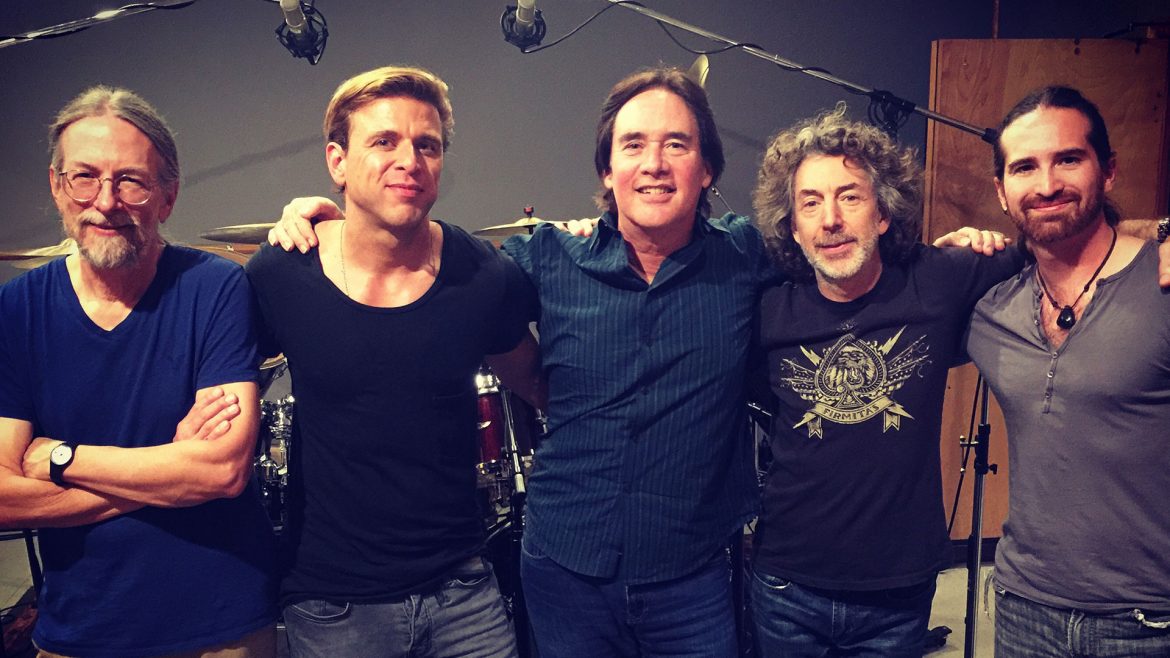
In a career driven by success, I wanted to know how Carl defines and measures that concept. His answer is a clear example of why many people, including myself, consider this man to be an example of humility and humanity…
Success can be measured by, if you were able to support your family. I don’t care how famous you get; yeah, Prince is really famous, so he’s a huge success and that’s just something we’ll never touch, right? But, on another level, hey man…I’ve been able to support my family my whole life by playing the guitar, and that is just a beautiful thing! I’m a positive guy and I take this old adage my dad always said which is: “If you work hard, you will succeed”, so I just work hard.
—J.C.
Grand Designs: The Music of Carl Verheyen
Carl Verheyen – About “Mustang Run”
Listen and learn more about Carl Verheyen
Carl Verheyen’s Official Website.
Carl Verheyen on SoundCloud.
Get Carl Verheyen’s Album, Mustang Run, on iTunes.
